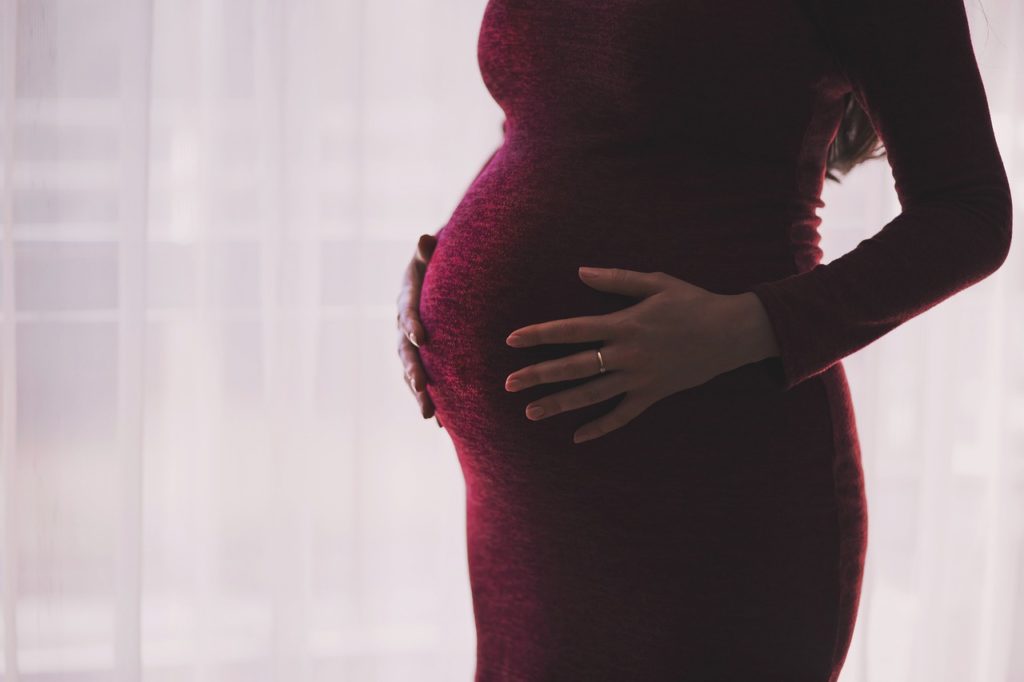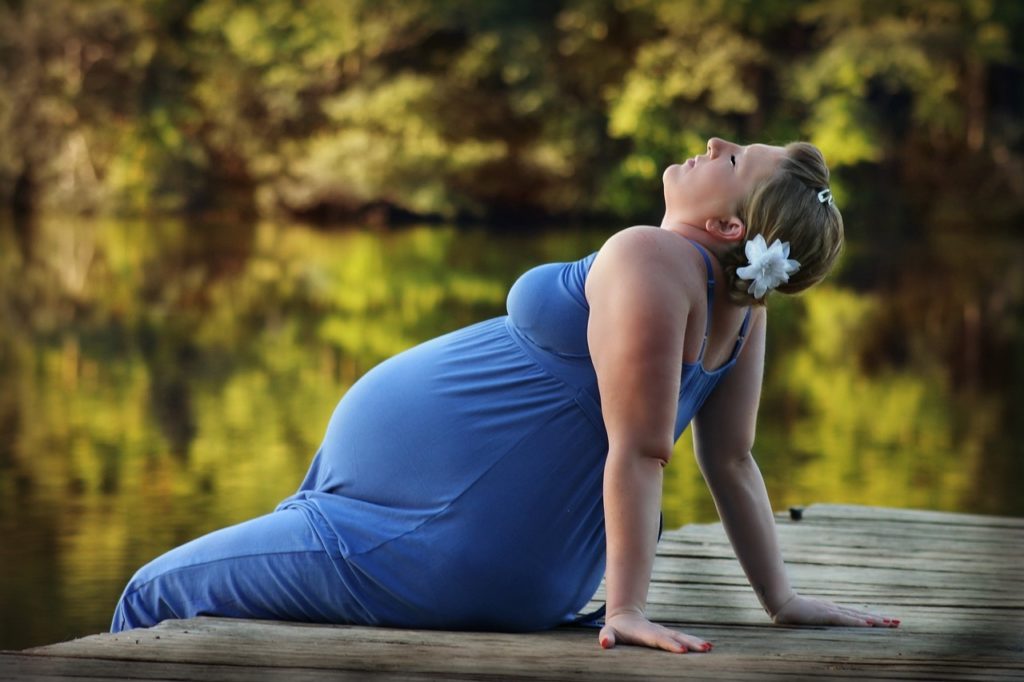Considering uterine fibroids grow inside the uterus, it should be relatively apparent that they can affect a pregnancy. It is well-recognized that fibroids can affect pregnancy, but it is unclear exactly how Uterine Fibroids Can Affect Pregnancy and how each woman is affected differently.
If you have fibroids, you might be concerned about how they affect your pregnancy. Here are some details regarding what women with uterine fibroids can anticipate going through during pregnancy.
Do Fibroids Affect Your Ability To Have Children?
Let’s begin with the good news. Several women will have fibroids, which won’t prevent them from getting pregnant. The fibroids could remain tiny or develop outside of the reproductive system. However, some fibroids will significantly impact a woman’s ability to conceive, remain pregnant, and carry a child to term.
Fibroids may stand in the way of the sperm and egg to form a child, depending on where they are placed. Fibroids can hamper the ability of an embryo to implant. They frequently develop in sizes or locations, making it difficult for a pregnancy to continue. Fibroids may potentially have an impact on the fetus’s health and welfare.
If you have fibroids and are trying to get pregnant, it’s crucial to talk to your doctor about whether the fibroids are in any areas that would make it difficult for you to conceive or in any areas that could lead to pregnancy-related difficulties. Therefore, fibroid treatment is typically advised.
If you are currently pregnant, you should make sure that your fibroid surgeon and your gynecologist keep an eye on any fibroids that may be present. Sometimes the fibroids will grow along with the baby. Pregnancy and delivery difficulties may result from this. Your prenatal treatment must pay close attention to the growth and presence of any existing fibroids.

Is It Possible To Fall Pregnant When Fibroids Are Present?
Uterine fibroids can affect fertility differently in different women. According to several studies, between 5% and 10% of all infertile women are thought to have a minimum of one fibroid. This does not necessarily indicate that the fibroids contributed to infertility in these ladies. In general, the size and location of uterine fibroids affect fertility the most.
For instance, uterine fibroids are more likely to cause infertility than uterine fibroids that develop in other parts of the uterus. Additionally, uterine fibroids with a diameter greater than six cm are likely to contribute to infertility.
In the uterine cavity, big fibroids and growths are fortunately rare. The great majority of women won’t lose their fertility as a result of fibroids. To be sure that other problems aren’t the cause of infertility, you and your spouse should undergo a complete evaluation if you suspect fibroids are affecting your fertility.
How Do Fibroids Affect Pregnant Women?
Because fibroids frequently don’t create symptoms, women often discover fibroids in their uterus when they get their first ultrasound to check on the baby’s development. However, in a few instances, women will also have symptoms of fibroids after giving birth. Pregnant women typically experience discomfort, have a fever, feel nauseous, and occasionally have an increase in the number of white blood cells in the blood as their symptoms.
Women are typically advised to take painkillers to assist them in dealing with their discomfort and suffering. Although there are various ways to get rid of fibroids, a woman cannot have them removed while pregnant. The uterus is much more likely to hemorrhage while pregnant. As a result, removing the fibroids from the womb is impossible. A pregnant lady must wait until after giving birth to have her uterine fibroids removed. In this manner, there is significantly less chance of excessive bleeding or other consequences.

Are Fibroids Dangerous For You And Your Baby?
Many women who have uterine fibroids also wonder if having uterine fibroids may endanger their health or the health of their unborn child. Fortunately, most fibroids-affected pregnant women can experience a typical pregnancy and vaginal delivery. Fibroids can, however, occasionally result in difficulties. Generally speaking, a fibroid’s size and location determine how likely it is that it may create issues.
Location is unquestionably the most crucial element, even more essential than size. A woman might, for instance, have a massive fibroid near the top of her uterus. Despite its enormous size, the fibroid may not affect the pregnancy due to its position. Women shouldn’t believe that having fibroids, particularly huge ones, will inevitably affect their capacity to carry a safe pregnancy. Not all women have trouble getting pregnant because of fibroids.
Fibroids can increase the chance of a first- or second-trimester miscarriage. This is particularly valid for fibroids situated in the uterine cavity instead of the uterine wall. According to a few studies, fibroids may increase the incidence of stillbirths, incorrect fetal positioning, premature labor and delivery, and placenta abruption. However, an equal number of studies contend that this is untrue.
Bottom Line
In general, women should understand that it is unusual that their fibroids would have any detrimental effects on their unborn children. It is exceedingly rare for fibroids to cause injury or birth defects in a newborn. Fibroids are a nuisance for the great majority of pregnant women.
You need to monitor your fibroids closely with your doctor to stay ahead of the condition. This will help you have a glorious pregnancy that will result in a healthy, beautiful baby that you will cherish for the rest of eternity.

5 Foods To Avoid To Reduce Uterine Fibroids
Uterine fibroids are a common health concern among women, often leading to heavy bleeding, pelvic pain, and fertility issues. While the exact cause remains unclear, research suggests that diet plays a crucial role in fibroid management. Here are five foods to avoid if you want to reduce your risk and symptoms. 1. Processed Meats Processed […]
Fibroids And Exercise: What’s The Best Workout Plan?
Exercise is not just beneficial for weight loss—it also plays a crucial role in **hormonal balance, inflammation control, and improved circulation**, all of which can influence fibroid growth. But not all workouts are created equal when dealing with fibroids. Why Exercise Matters for Fibroids Regular physical activity helps manage fibroids by: Regulating Estrogen Levels: Exercise […]
Green Tea And Fibroids: Can It Help Shrink Tumors?<
Green tea has been consumed for centuries due to its numerous health benefits, but recent studies suggest it may also help **shrink fibroids**. The key lies in its high content of **epigallocatechin gallate (EGCG)**, a powerful antioxidant with anti-inflammatory and anti-estrogenic properties. How Does Green Tea Help with Fibroids? Research indicates that green tea can […]
How Hormones Influence Fibroid Growth
Hormones are the **primary drivers of fibroid growth**, with estrogen and progesterone playing key roles. Many women with fibroids struggle with hormonal imbalances, often without realizing it. Understanding how these hormones interact can help you take control of your health and manage fibroid symptoms effectively. What Causes Hormonal Imbalances? Several factors can contribute to excess […]
